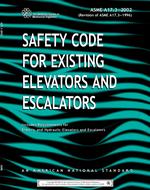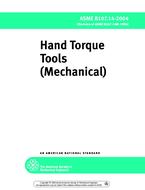Click here to purchase
This Standard prescribes methods for the performance evaluation of laser-based spherical coordinate measurement systems and provides a basis for performance comparisons among such systems. Definitions, environmental reguirements, and test methods are included with emphasis on point-to-point length measurements. The specified test methods are appropriate for the performance evaluation of a majority of such instruments and are not intended to replace more complete tests that may be required for special applications. This Standard establishes requirements and methods for specifying and testing the performance of a class of spherical coordinate measurement systems called laser trackers. A laser tracker is an instrument that directs the light from a ranging device to a retroreflecting target (called a retroreflector) by means of a two-axis rotary steering mechanism while monitoring the angular position of these rotary axes, thereby forming a spherical coordinate metrology system. Such an instrument may measure a static target, track and measure a moving target, or measure (and perhaps track) some combination of static and moving targets. This Standard focuses specifically on the use of laser trackers as industrial measurement tools rather than their use in surveying or geodesy. Specified tests are designed to evaluate the point-to-point length measurement capabilities of these instruments. Additional tests are included that evaluate the range measurement capability of laser trackers equipped with absolute distance meters (ADMs). The tests do not evaluate workpiece thermal compensation capability and are not sensitive to spherically mounted retroreflector (SMR) imperfections.
Product Details
- Published:
- 11/30/2006
- ISBN(s):
- 0791830047
- ANSI:
- ANSI Approved
- Number of Pages:
- 48
- File Size:
- 1 file , 1.3 MB


